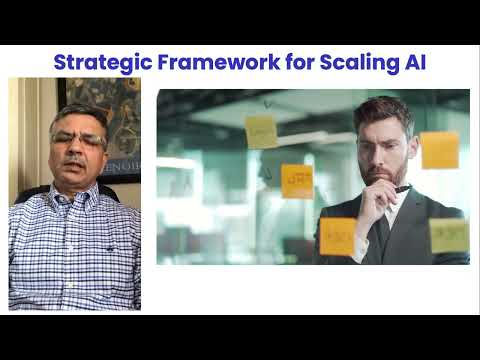AI for Healing Hospitals
- Dr Ajay Bakshi
- Apr 29, 2025
- 5 min read

Introduction: Navigating the Next Wave in Indian Healthcare
The Indian healthcare landscape is a study in dynamism and complexity. Within this, the corporate hospital sector stands out – characterized by intense competition, rising patient expectations for quality and experience, significant capital investments, and an ever-present pressure on operational efficiency and profitability. We see islands of cutting-edge technology coexisting with persistent traditional challenges.
Amidst this, Artificial Intelligence (AI) has moved from a futuristic buzzword to a tangible, albeit complex, reality. While the hype cycle continues, the pertinent question for healthcare leaders in India is no longer if AI will impact care, but how we can strategically harness its capabilities to address core operational and clinical challenges specific to our environment. This isn't about implementing AI for AI's sake; it's about leveraging intelligent tools to solve real-world problems, enhance care delivery, and build sustainable, patient-centric organizations.
This post explores practical, high-impact AI applications tailored to address some of the most pressing issues faced by professionally managed corporate hospitals in India today.
The Unignorable Hurdles: Efficiency, Talent, and Experience
Before diving into solutions, let's acknowledge the context. Leading hospital chains grapple daily with significant pressures. Optimizing resource utilization, particularly ensuring healthy bed occupancy with the right patient mix, is fundamental to financial health. Simultaneously, the challenge of acquiring, retaining, and continuously skilling high-quality clinical talent, especially nurses and specialized HCPs, remains a critical bottleneck impacting both cost and quality of care. Compounding this is the ever-increasing demand from patients for a seamless, personalized, and supportive experience, which is fast becoming a key differentiator in a competitive market.
AI for Growth: Tackling Occupancy & Patient Volume with Precision
Addressing modest occupancies requires moving beyond traditional outreach. AI offers potent tools for precision targeting:
Hyper-Targeted Patient Acquisition (Marketing & Outreach): In the highly competitive Indian healthcare market, corporate hospitals can move beyond generic marketing campaigns by leveraging AI for hyper-targeted patient acquisition. AI algorithms can analyze vast datasets – including anonymized demographic information, website interaction patterns, online health queries (respecting privacy regulations), social media sentiment, and geographic data – to identify distinct patient segments with specific healthcare needs. This allows hospitals to create highly personalized marketing messages and targeted digital advertising campaigns (via platforms like Google, Facebook, etc.) promoting specific high-margin service lines (like oncology, cardiology, orthopedics, or specialized surgeries) or addressing underutilized capacity. For instance, AI could help identify potential candidates for elective procedures within specific city zones, target corporate employees with tailored wellness packages, or even pinpoint international patient clusters for medical tourism outreach. By predicting which channels and messages are most likely to resonate with specific segments, AI optimizes marketing spend, improves conversion rates from inquiry to admission, attracts the desired patient mix, and ultimately helps fill beds more effectively, ensuring patient privacy and data security remain paramount throughout the process.
Why it Matters: This isn't just about filling beds; it's about filling them smartly – attracting patients who need the specialized services the hospital excels at, thereby improving case mix, optimizing resource use, and bolstering financial stability.
AI for Stability: Nurturing Talent & Reducing Attrition
The human element is irreplaceable in healthcare, yet talent churn is a major drain. AI can help create a more supportive and growth-oriented environment:
A Synergistic Approach to Skilling and Retention: Addressing the persistent challenges of skill gaps and high attrition among nurses and HCPs in demanding Indian corporate hospital environments requires a multi-pronged AI strategy. Imagine integrating AI-personalized learning hubs that deliver tailored micro-learning modules directly to staff devices, efficiently closing individual competency gaps and fostering continuous professional development based on real-time needs and career goals. This is powerfully complemented by AI-powered simulations (using VR or screen-based scenarios) allowing staff to practice critical, high-pressure situations – from emergency responses to mastering new medical technology – in a safe, repeatable environment with immediate, objective feedback, thereby building crucial skills and confidence. Crucially, underpinning these development tools, AI-driven sentiment analysis can continuously process anonymized feedback from surveys and internal channels, identifying underlying stressors, sources of dissatisfaction, or systemic issues contributing to burnout and attrition. By combining personalized, accessible skill-building with realistic practice and a deep, AI-enabled understanding of workforce morale and concerns, hospitals can create a synergistic ecosystem that not only enhances clinical capabilities but also fosters a more supportive and engaging environment, ultimately leading to a more highly skilled, confident, and stable nursing and HCP workforce.
Why it Matters: Investing in staff development and well-being through AI isn't just an HR function; it directly impacts the quality of patient care, operational consistency, and significantly reduces the high costs associated with recruitment and onboarding due to attrition.
AI for Loyalty: Revolutionizing Patient Experience & Engagement
In the corporate hospital segment, clinical excellence must be matched by experiential excellence. AI can personalize and streamline the patient journey dramatically:
Creating a Seamless, Supportive Patient Ecosystem: Imagine transforming patient engagement in Indian corporate hospitals with an AI-powered ecosystem designed for continuous, compassionate, and clear communication. At its heart could be an Empathetic, Multilingual Digital Companion (#2), accessible 24/7 via familiar interfaces like smartphones or in-room devices. This AI wouldn't just answer basic queries or schedule appointments; it would understand patient sentiment, respond with empathy, offer support in various Indian languages, and act as a constant, reassuring presence. Powering its communication capabilities, Generative AI (#4) would work seamlessly behind the scenes to translate complex medical jargon from doctor's notes, test results, or discharge instructions into simple, personalized summaries tailored to the individual's language and literacy level, ensuring genuine understanding. Critically, this AI support wouldn't cease upon leaving the hospital; the AI would extend into a Curated Post-Discharge Wellness Ecosystem (#6), providing personalized recovery plans, gamified health challenges, connections to moderated peer support communities, and proactive reminders or check-ins, fostering long-term adherence and well-being. By integrating these capabilities, hospitals can empower patients with unprecedented clarity and continuous support, breaking down communication barriers and fostering sustained engagement throughout their entire care journey and beyond.
Why it Matters: A superior patient experience, powered by AI-driven personalization and support, directly translates into increased patient satisfaction, stronger loyalty, positive word-of-mouth, and a powerful competitive edge.
Moving Forward: From Potential to Practice
Implementing AI effectively is not without its challenges. Data silos, integration with legacy systems (HIS, EMR), ensuring data quality and governance, managing implementation costs, navigating ethical considerations (privacy, bias), the need for robust clinical validation, and driving user adoption require careful planning and execution.
A pragmatic approach is crucial:
Start Focused: Begin with pilot projects targeting specific, high-impact problems with clear ROI metrics (clinical or operational).
Prioritize Data: Invest in data infrastructure and governance from the outset.
Involve Clinicians: Ensure clinical teams are involved in selecting, validating, and implementing AI tools.
Manage Change: Develop clear communication and training strategies to support staff adoption.
Stay Ethical: Maintain rigorous standards for data privacy, security, and algorithmic fairness.
Conclusion: Leading the AI Transformation in Indian Healthcare
AI offers more than just incremental improvements; it presents a strategic opportunity for Indian corporate hospitals to fundamentally enhance efficiency, nurture talent, and deliver truly patient-centric care. However, realizing this potential requires more than just technology adoption. It demands visionary leadership, strategic planning, cross-functional collaboration, and a deep understanding of both AI's capabilities and the unique complexities of the Indian healthcare context. By moving beyond the hype and focusing on practical, high-impact applications, India's leading hospitals can leverage AI not just to heal patients, but to help heal the system itself.



Comments